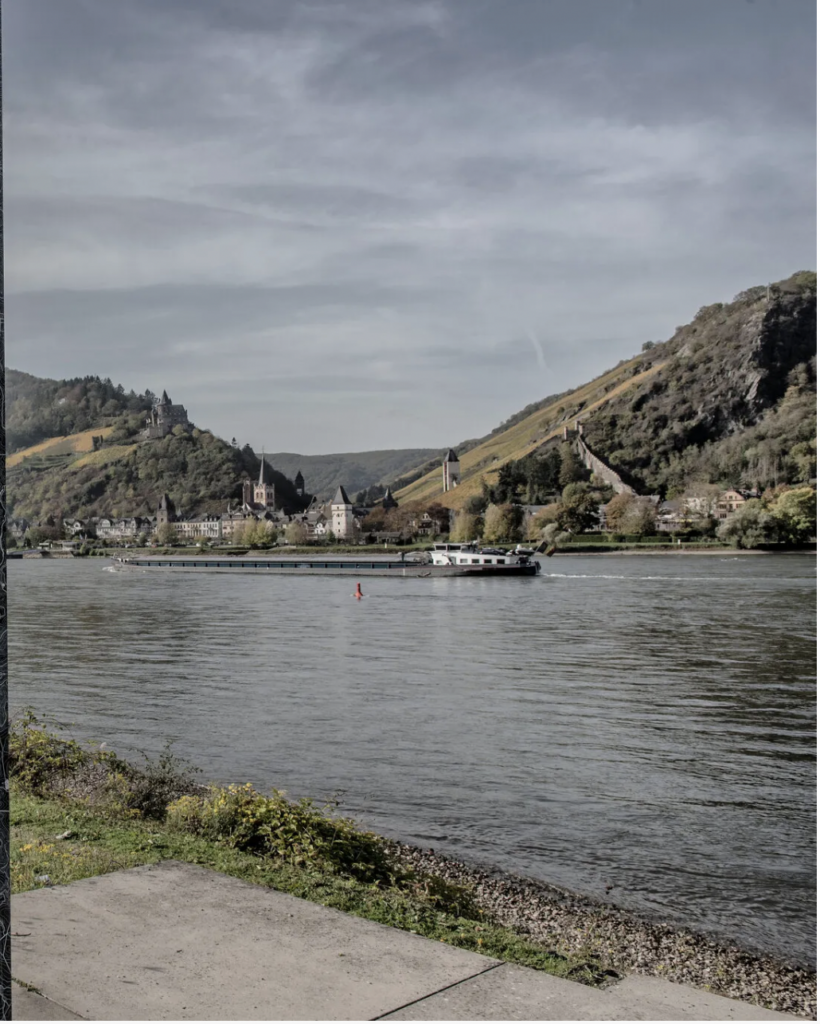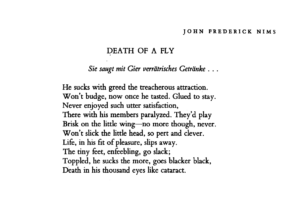
In 1970, the New York Times titled an article donning the Rhine as the “sewer of Europe,” deriving from the Dutch phrase, “het riool van Europe” (Pace). The article attributes pollution as the culprit to the diminishing beauty of the historic and fabled river due to increases in detergents, pesticides, and other chemicals. In 2023, climate change exerts itself to the top of the list for factors in the decline. Because of the importance of sustaining the Rhine for shipping, transport, and preserving history, experts now question how we can mitigate, or even adapt, to climate change and pollution threatening the prosperity of such a vital feature of the German landscape.
The Rhine River experiences low water levels often and has for many years. Although, climate change exacerbates the extent of severity and duration of time the low levels occur, therefore also the economic impact. Increased evaporation and decreased precipitation caused by climate change reduce the amount of water in the Rhine as well as the famously shrinking Great Salt Lake in Utah, United States. Compounding the low water levels with ever-present pollutants, adaptation prevails necessary to continue utilizing the river’s and lake’s sustainably.
After a week’s long low period of the Rhine accompanied by a 0.3% economic loss in Germany in 2018, i.e., the 12 billion euros (Schuetze), a grand simulation project emerged to gather evidence on the feasibility of deepening the river. For hundreds of years the Rhine has been straightened and deepened – but the current project is taking too long, people are eager to see the project completed, and the present obstacles make it impossible for some industries to prosper with the fleeting river acting as their failing avenue for business.

In October 2022, the Great Salt Lake in Utah hit a record low level contributing to the rapid shrinking size. The lakebed of Great Salt Lake contains arsenic, silt, and clay particles small enough that when the lakebed is exposed, these chemical particles release into the air, and risk the health of 1.3 million residents of the surrounding areas (Howes). Although the Great Salt Lake does not support fish, it does house brine shrimp important to the diet of migrating birds (Van Tatenhove) and Utah’s economy. Brine shrimp act as important factors in Utah’s economy as farmers sell them as fish food to aquaculture businesses. As pollutant concentration in the Rhine increases as water levels decrease, salinity in the Great Salt Lake increases from the same cause, negatively affecting the brine shrimp population and therefore the economy.
The Great Salt Lake and the Rhine River face both ecological and economical changes. Although the consequences of each vary, they both suffer from human perpetuated issues that require human encouraged repairs.
Works Cited
Howes, Laura. “What Happens When the Water in Our Rivers and Lakes Reaches Record Lows?” C&N: Chemical and Engineering News, 29 Oct. 2022, https://cen.acs.org/environment/climate-change/happens-water-rivers-lakes-reaches/100/i38.
Schuetze, Christopher F., and Laetitia Vancon. “Can Germans Save Their Beloved Rhine?” The New York Times, The New York Times, 11 Nov. 2022, https://www.nytimes.com/2022/11/11/world/europe/germany-climate-change-rhine-river.html.
Special, Eric Pace. “Countries That Touch the Fabled Rhine Take Steps to Clean up the ‘Sewer of Europe’.” The New York Times, The New York Times, 22 Mar. 1970, https://www.nytimes.com/1970/03/22/archives/countries-that-touch-the-fabled-rhine-take-steps-to-clean-up-the.html.
Van Tatenhove, Aimee. “Increasing Great Salt Lake Salinity Predicted to Impact Utah Brine Shrimp.” UPR Utah Public Radio, Utah Public Radio, 26 Sept. 2022, https://www.upr.org/utah-news/2022-09-28/increasing-great-salt-lake-salinity-predicted-to-impact-utah-brine-shrimp.


